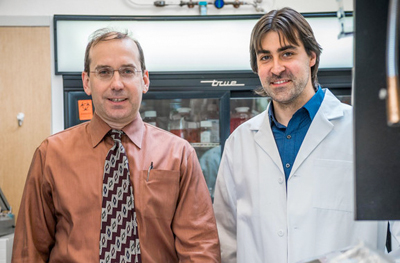Joan Montero and colleagues in Boston suggest a new strategy for melanoma patients
IBEC researcher Joan Montero authors a paper in Nature Communications which uncovers a key adaptation that melanoma cancer cells use to evade current therapies. This finding might allow physicians to use better drug combinations to improve patient outcomes in the future.
Despite significant advances in cancer diagnosis and treatment, most targeted cancer therapies fail to achieve complete tumor regressions or durable remission. Understanding why these treatments are not always efficient has remained a main challenge for researchers and physicians. Now, Joan Montero from the IBEC and colleagues at Dana-Farber Cancer Institute/Harvard Medical School in USA report in Nature Communications a mechanism that uncovers why some therapies fail to treat melanoma.



 Joan Montero, a senior researcher in IBEC’s Nanobioengineering group, appeared yesterday in an interview published by the SINC Agency in which he talks about his laboratory test – which is already being used in some hospitals in the United States – which is capable of predicting, in just 24 hours, if a drug will be able to kill a tumor.
Joan Montero, a senior researcher in IBEC’s Nanobioengineering group, appeared yesterday in an interview published by the SINC Agency in which he talks about his laboratory test – which is already being used in some hospitals in the United States – which is capable of predicting, in just 24 hours, if a drug will be able to kill a tumor.